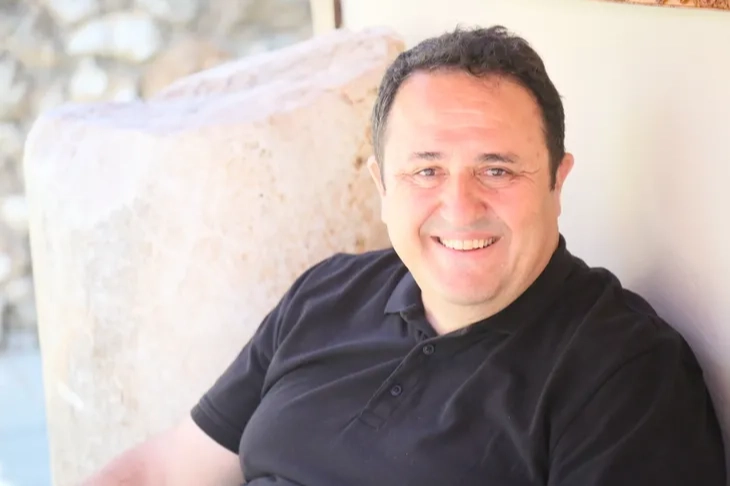
Last-Minute Tourists Are Avoiding Turkey
During what should be the peak of the tourism season, occupancy rates have fallen 30% behind last year. Industry representatives note that high prices are deterring both domestic and international visitors, leading to a perception that Turkey is expensive and driving away last-minute tourists. Despite opening the tourism season early with holiday periods, Turkey's mid-season occupancy in July is trailing last year's figures. Representatives highlight that high prices are also discouraging last-minute tourists, with tourism centers on average 30% behind last year's occupancy rates.
Representatives note that high prices particularly impact establishments offering breakfast and room services, although there are no major issues for affordable all-inclusive five-star hotels. They emphasize that accommodation in tourism centers like Antalya, Marmaris, Bodrum, Çeşme, and Ayvalık is not significantly more expensive than their European counterparts, attributing higher costs primarily to personnel and rental expenses.
Additionally, the high cost of food and beverages in restaurants is negatively affecting both domestic and international tourists' decisions to choose Turkey, with losses in the food and beverage sector exceeding 50%. Representatives also point out that domestic tourists are opting for Greek islands due to lower prices there, influenced by factors such as fewer staff, lower-quality hotels, and a lack of brand recognition.
"Our Prices Are Very High and We're Missing the Mark"
Alp Özel, President of the Antalya Tourist Establishments Hoteliers and Pensioners Association (ANTOP), stated that July started poorly in terms of tourists, although there are no major issues with occupancy rates in city center hotels, which are around 70%. Özel noted that the daily rates for three-star boutique hotels with bed and breakfast and swimming pools have dropped from 100-110 euros last year to 60-70 euros this year. He reported that second-class hotels near the sea in Konyaaltı and Kemer are empty. Özel emphasized the difficulty in budgeting, particularly for five-star hotels, which calculate their costs in euros and dollars. He mentioned that many had anticipated higher exchange rates, resulting in significant revenue losses and a 30-35% drop in occupancy compared to last year.
Despite optimistic reports from the Ministry of Tourism, Özel noted a 25% decline in domestic tourists, attributing high prices as a deterrent for foreign tourists, making Turkey seem expensive. He stressed the importance of the so-called 'affordable five-star hotels,' which number around 450 and face substantial cost increases, noting that even entry-level staff demand high wages.
Russians Lead in the First Half of the Year
Kaan Kaşif Kavaloğlu, President of the Mediterranean Tourist Hoteliers and Operators Association (AKTOB), reported over 90% occupancy in Antalya hotels, noting the continued disadvantage posed by the Russia-Ukraine war. He mentioned some recovery from the lost Ukrainian market, with Ukrainians making reservations through Europe. Russians continue to visit, reclaiming the top spot in the first six months after Germans led in the first five months. He noted a 15% increase in prices in euros compared to last year.
"The Season Started This Way Last Year Too"
Buğra Artıç, Chairman of the Board of the South Marmara Tourist Hoteliers and Operators Association, expressed disappointment with the level of tourists from the Middle East, who have shifted more towards the Balkans. He mentioned that while the tourism numbers in Bursa started similarly to last year, a slight increase occurred later. Artıç is hopeful for more growth in August, despite a slow start to the season.
"This Season Won't Turn Around"
Idris Akgül, operator of Bono Restaurant and Hotel, reported a 20-30% decrease compared to last year, with no prospects of price reductions. He remarked that tourism professionals had hoped for recovery with last-minute tourists, but negative feedback from previous visitors regarding high prices and poor conditions has deterred last-minute bookings.
"Turkey Has Become Expensive for Foreigners"
Ali Uçar, President of the Ayvalık Chamber of Commerce, cited several reasons for the downturn in tourism, noting that only 8% of Turkey's population can afford mid-to-high-end vacations, roughly 6.5 million people heading to Aegean and Mediterranean resorts. He pointed out that Turkey has become expensive for foreign tourists, with some countries finding the Turkish lira still unattractive. Uçar highlighted the significant rise in costs beyond inflation, which naturally affects prices. He noted that while Greece and Turkey's price difference is relative, Turkey's higher service levels make its prices seem cheaper.
Domestic Tourists Favor Greek Islands
Cenk Öztanık, CEO of Avantgarde Collection, mentioned that while hotel prices are not excessively high compared to European counterparts, there is notable inflation in Istanbul and even higher inflation in Bodrum. He stated that high prices are driving people to Greek islands and Europe, even affecting yacht traffic. Öztanık predicted increased activity starting this week but questioned the overall satisfaction with the short 50-day busy period.
4o